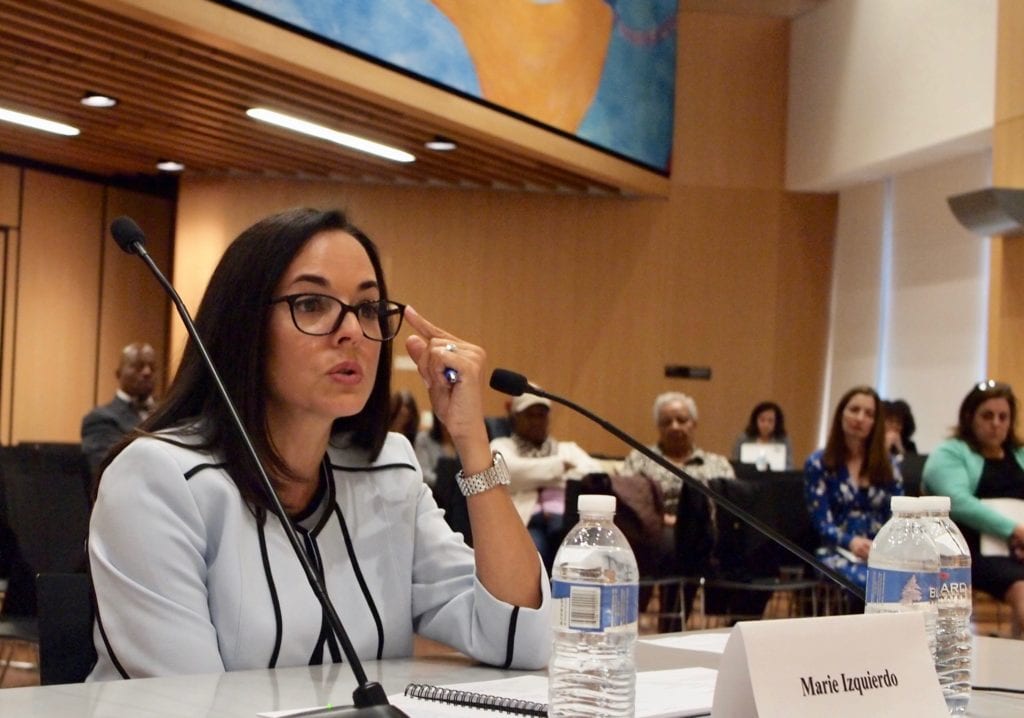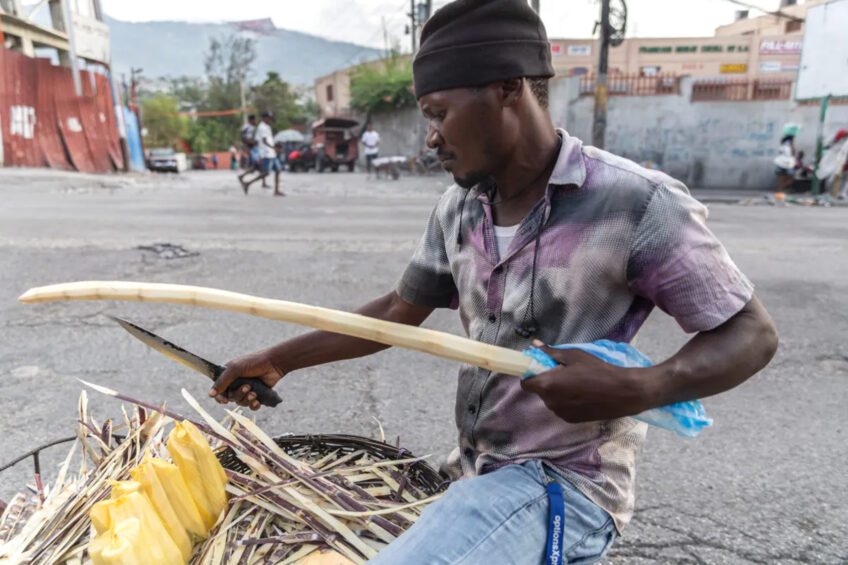
Boston School Committee members and community members posed questions to school superintendent candidate Marie Izquierdo Monday. The Miami-Dade County School District Chief Academic Officer was the first of the three finalists for the job to go through nine hours of interviews scheduled this week.
Responding to questions, Izquierdo drew from her experience in the Miami-Dade district — the fourth-largest in the U.S. — to describe the approach she would take to governing the Boston schools.
Asked what she would do to close the gaps in achievement between students of different socio-economic backgrounds, races and levels of English proficiency, Izquierdo said the challenge is among the greatest facing the city. Her solution would be to make sure all schools align their standards.
“One of the most important levers that any school district can pull to make sure that we have a world class education available in every neighborhood is to make sure that students are being pushed and that students have access to standards that are at their grade level,” she said.
Izquierdo also said expansion of early childhood education, accelerating students’ transitions from ELL status and expanding access to digital devices helped aid in closing the gaps in Miami-Dade.
“If you look at my record, you will see that since 2011, when you look at the percentage of students that are graduating in Miami-Dade, you will find that English Language learners and our African American students have closed their gap in half,” she said.
Caitlin Gaffney, a teacher at Roxbury’s Tobin K–8 School, cited the effect of recent budget cuts to her school: lost librarian, student support coordinator, shared social worker, school resource officer, assistant principal of student programs.
“We could never afford a guidance counselor and will again be cut to one special educator to serve all our students on IEPs,” she said.
In response to Gaffney’s question and a similar question from the audience, Izquierdo cited school closures and building shifts as a means to cut costs and keep more money in classrooms.
“I would be making difficult decisions,” she said. “I also believe that when you are making difficult decisions you have to consider your current reality. The reality is that you have 18,000 students that are not choosing BPS. They’re going elsewhere, and we have declining enrollment. And while we may not like those data points, they are real. We have to, as an organization, adjust accordingly. With everyone at the table, we have to have a comprehensive plan for school consolidation.
“The current footprint for BPS is too big. I think that most people would agree with . Nobody wants to give anything up. Nobody wants to give up a school building. However, we do need to right-size ourselves in a very thoughtful and deliberate way.”
Asked about her thoughts on standardized tests, Izquierdo said she streamlined the volume of tests used in Miami-Dade after the state mandated end-of-year exams in every subject.
“We lobbied very heavily as to what the policy would do,” she said. “We looked at our own testing schedule. We cut 24 exams. The following year, we cut another 12 exams. We returned 185 minutes to classrooms for instruction, for teaching and learning.”
But the testing, Izquierdo said, is essential for driving improvement in Miami-Dade.
“I believe very strongly in using data to drive decision-making,” she said. “I believe that data in Miami-Dade is our superpower.”
When School Committee member Lorna Rivera asked Izquierdo her thoughts on charter schools, she said the charter landscape in Florida is different from that in Boston.
“In Florida, the charter industry is highly privatized,” she said. “I personally believe there shouldn’t be room for profit in the education space. I don’t think companies should be pitting pupils against profits.”
Izquierdo noted that the Miami-Dade district manages seven in-district charters.
“There are great charters and there are lousy charters,” she said. “I think that we have a lot to learn from them sometimes, and sometimes they have a lot to learn from us.”
In making its decision between three candidates, School Committee members will choose among Izquierdo, former Minnesota Education Commissioner Brenda Cassellius and former Randolph School Superintendent and current Cathedral High School head Oscar Santos. The Banner will post summaries of the other candidates’ interviews on its website Wednesday and Thursday.
In her closing remarks, Izquierdo said she is uniquely qualified for the job.
“I think you’ll be hard-pressed to find someone who has the level of experience I have, the level of commitment to this work and then the outcomes my team and I have been able to achieve.”
Izquierdo noted that the Miami-Dade student population is as diverse as that in Boston and is six times larger. She said School Committee members can judge her on her work in Miami-Dade.
“That’s very, very complex,” she said. “People say ‘[Boston] is really complex.’ I say, ‘Look at the body of work and let the body of work speak for itself.’”






